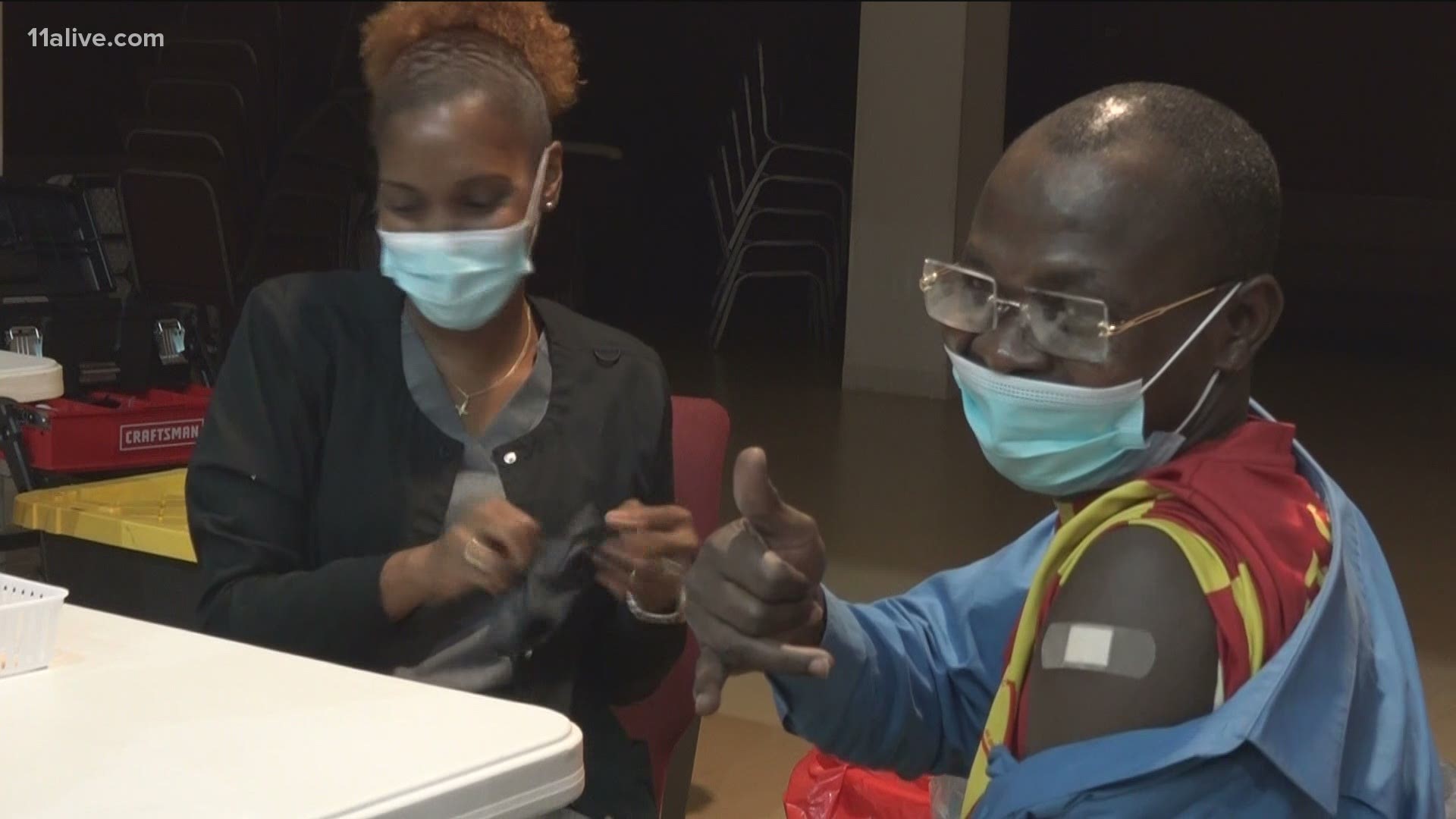CLARKSTON, Ga. — The effort to reach more people with the vaccine means groups like CORE Georgia are now hyper-focusing on hard-to-reach communities. Such efforts include Clarkston, Georgia, a community thousands of refugees call home.
"So, as we all know that Clarkston's square mile is one of the most diverse nationwide," Omar Aziz, community help response manager for International Rescue Committee Atlanta, said. "And as we know, there's a lot of barriers for these communities, for like languages, culture, and transportation. So we make it easier when we go to where they live."
IRC and CORE are part of a key partnership when it comes to vaccine outreach in the community. Staff with CORE's mobile site team in DeKalb County said they speak around 20 languages, while the IRC is ingrained in the community.
"As a former refugee," Aziz said, "I went through a lot of issues before we arrived here. So I know the community very well and how much they were suffering until they reach here."
"With that trust that we're building with them, they're feeling more confident, more secure to be able to come out," Jackie Mora, CORE's operation manager said.
Such work is critical, but there are others also lending a hand.
Refugee caseworker and minister Crispin Ilombe Wilondja has made it a personal mission to help.
"We will not overcome this pandemic if we don't join our effort together, Wilondja said. "One way is to convince, to bring as many people as I can to be vaccinated."
As a result, he said he's driven more than 20 people to their vaccine appointment. Another reminder that working together is key, and every little bit helps.
"Even if we have smaller numbers on certain days, the smaller numbers still make our mission worth it. Because we're providing those vaccines for someone who maybe wouldn't have come out to get a vaccine," Mora said.
"The work of IRC and CORE has made a difference," Dr. Michael Eriksen, public health expert and professor at Georgia State University, said. Eriksen and GSU researchers said they've been tracking vaccination rates and report numbers in some Clarkston neighborhoods are now closer to 40%.
Eriksen, however, made it clear there's more work to be done. Georgia State recently was awarded a one-year $500,000 grant from the Centers for Disease Control and Prevention to help address vaccine hesitancy issues and increase vaccine confidence in the African American and refugee, immigrant, and migrant community in Clarkston.
"We’re targeting some of the largest refugee populations by country of origin, hiring people from those communities," Eriksen said. "The project will train and utilize 'community navigators' representing various cultural groups including the Burmese, Congolese, Afghan, Somali, Middle East, and African American communities.
"The people who’re going to get vaccinated have been vaccinated, and the remained who haven’t yet are going to require more interpersonal persuasion and individual work from what are called trusted messengers," Eriksen explained of the project, which began interviews Monday.
With the Delta variant now circulating, there's also added urgency to increase the number of shots in arms.
"Every day it’s push, push, push. Getting people hired and trained. Realizing this is not a research project. This is a public health effort," Eriksen said. "This variant is very infectious and if you’re unvaccinated the virus is going to seek you out.”

